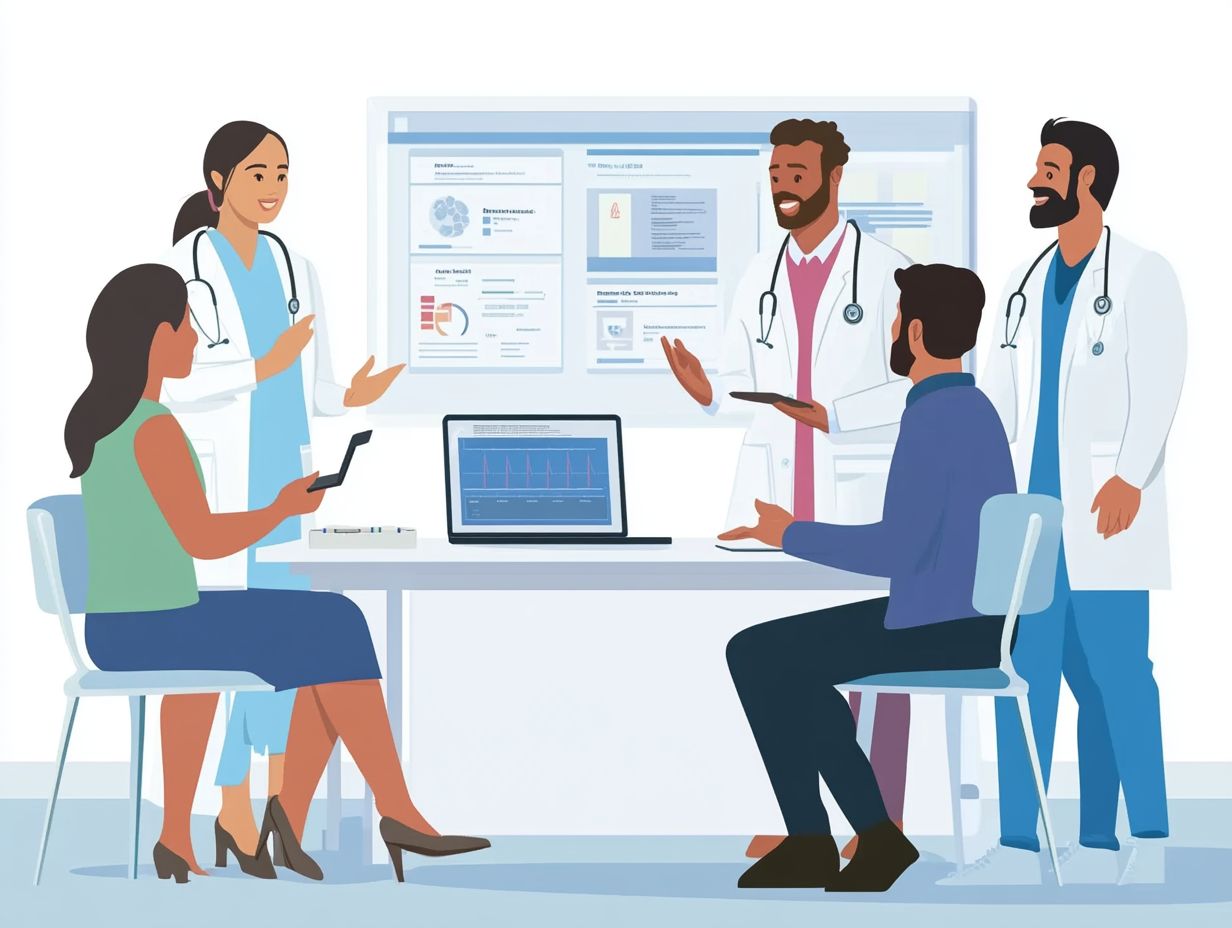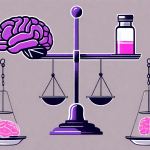Clinical trials play a pivotal role in cancer diagnosis, offering valuable insights into new treatments and improving patient outcomes. These trials are essential for testing the safety and effectiveness of innovative therapies, guiding oncologists in treatment decisions, and enhancing cancer care through evidence-based treatment options.
Various types of clinical trials, including exploratory, observational, and interventional trials, contribute to advancements in cancer diagnosis. These trials help validate new diagnostic methods, improve early detection techniques, and refine treatment plans through rigorous comparison with existing standards, ensuring methodological rigor.
Participating in clinical trials provides patients with access to cutting-edge treatments while contributing to vital medical research. With clear eligibility criteria and informed consent processes, patients can make well-informed decisions about trial participation, balancing potential benefits, such as access to investigational drugs, against risks, including potential side effects.
For anyone considering joining a clinical trial, resources such as ClinicalTrials.gov and consulting healthcare providers, including oncologists and cancer care teams, can facilitate the process, ensuring access to new treatments and opportunities to contribute to the advancement of cancer diagnosis and care.
Key Takeaways:
The Importance of Clinical Trials in Cancer Diagnosis

Clinical trials are crucial in cancer diagnosis as they evaluate new treatments, including innovative therapies, and improve patient outcomes through enhanced treatment efficacy.
Clinical trials assess the safety and effectiveness of drugs across diverse patient populations, determining eligibility based on demographics and medical history, which helps address health disparities in cancer diagnosis.
Oncologists guide patients in clinical trial selection, helping them understand potential benefits and implications for cancer care.
Understanding the Purpose of Clinical Trials
The primary purpose of clinical trials is to test the safety and effectiveness of new drugs and treatments, ensuring patient safety and optimal health outcomes.
Clinical trials compare new therapies with standard treatments to determine their efficacy, potential side effects, and overall impact on patient care and treatment protocols.
These trials provide essential data for medical professionals, guiding treatment decisions, enhancing patient care, and supporting oncologist recommendations for personalized cancer treatment plans.
Types of Clinical Trials
Clinical trials types include phase 1, phase 2, phase 3, and phase 4 trials, as well as exploratory, observational, and interventional trials.
-
Phase 1 trials test safety and dosage.
-
Phase 2 trials assess efficacy and side effects.
-
Phase 3 trials confirm effectiveness and monitor adverse reactions.
-
Phase 4 trials occur post-approval for long-term effects.
Exploratory trials investigate new methods.
Observational trials study outcomes without intervention, while interventional trials test new treatments or procedures.
Exploratory, Observational, and Interventional Trials
Exploratory trials investigate preliminary hypotheses in clinical research to identify potential treatment avenues.
Observational trials study participants in natural settings without altering variables to gather real-world data.
Interventional trials test the efficacy and safety of new drugs or treatments by altering variables to measure outcomes.
These trials collectively inform treatment options and enhance healthcare practices.
How Clinical Trials Help in Cancer Diagnosis

Clinical trials help in cancer diagnosis by evaluating new diagnostic methods, improving early detection techniques, validating biomarkers, and addressing genetic changes that might influence treatment decisions.
Clinical trials contribute to more accurate cancer diagnosis, enabling targeted treatment plans and informed patient care through effective communication with the research team.
Through clinical trials, researchers compare new diagnostic tools with existing standards to enhance the accuracy and speed of cancer diagnosis, thus reducing randomization bias and improving overall patient outcomes.
Early Detection and Treatment Advancements
Early detection of cancer through clinical trials enables timely treatment advancements, improving patient outcomes and reducing health disparities through prospective studies and patient education.
For example, a lung cancer screening trial showed that low-dose CT scans diagnosed cancer at earlier stages, significantly increasing survival rates. Early intervention, supported by clinical research, improves health outcomes and aligns with institutional barriers reduction strategies.
Similarly, breast cancer screening trials revealed that targeted mammography studies increased survival chances by 20% compared to traditional methods, highlighting the importance of phase 3 trials in validating such findings.
These examples highlight how clinical trials enhance detection techniques and lead to more effective treatments, underscoring the role of clinical study and drug development in advancing cancer treatment.
Participating in Clinical Trials
Participating in clinical trials involves enrolling in a research study to test new medical treatments or interventions, facilitated by trial enrollment processes and supported by patient trust and informed consent.
Participants must meet specific eligibility criteria and provide informed consent before joining, ensuring alignment with ethical standards and medical ethics guidelines.
Clinical trials aim to gather data on the safety and effectiveness of new treatments, including intervention drugs and innovative therapies, to enhance overall patient management.
Eligibility and Informed Consent
Eligibility criteria in clinical trials determine which patients can participate based on medical history, age, gender, ethnicity, and specific health conditions, helping to address demographic factors and institutional barriers in trial participation.
Informed consent ensures participants understand the trial’s risks and benefits, safeguarding patient rights and promoting ethical research practices.
Risks and Benefits of Clinical Trials

Clinical trial benefits include:
- Access to innovative therapies
- Potential for improved health outcomes
- Contribution to medical research and drug development
- Insightful patient education opportunities
- Access to new treatments
- Potential for improved health outcomes
- Contribution to medical research
Clinical trial risks involve:
- Potential side effects and unknown outcomes
- The possibility of treatment being ineffective
- Randomization leading to assignment in a control group
- Challenges in patient trust and informed consent
- Potential side effects
- Unknown outcomes
- The possibility of treatment being ineffective
Evaluating Potential Risks and Benefits
Evaluating potential risks and benefits is crucial for patients considering clinical trial participation to understand treatment options, informed consent, and the role of the investigational group versus the control group in treatment comparisons.
Patients must weigh potential advantages, like new treatments, against possible drawbacks, such as side effects or uncertain outcomes.
Clear communication and patient education from the research team help ensure patients are informed and involved in decision-making.
Finding and Enrolling in Clinical Trials
Finding and enrolling in clinical trials involves searching for studies through databases like ClinicalTrials.gov, contacting local hospitals, or consulting the National Cancer Institute (NCI), ensuring comprehensive access to NCI trials and community hospitals.
- Begin by identifying relevant clinical trials based on your condition or interest. Use online databases, hospital resources, and patient advocacy groups to find trials, addressing eligibility requirements and potential institutional barriers.
- Contact the clinical trial coordinator to discuss eligibility criteria, enrollment process, and study details. Complete the necessary forms and consultations with your healthcare provider.
Enrolling in clinical trials provides access to new treatments, facilitates patient participation, and contributes to medical research, supporting the work of the Principal Investigator and the Data Manager.
Resources and Steps for Joining a Trial
Joining a clinical trial involves understanding resources and steps, including collaboration with a Research Nurse and ensuring adherence to medical ethics.
- Research available clinical trials through registries or healthcare providers to find eligibility criteria and objectives.
- Communicate with healthcare professionals to clarify participation details.
- Discuss potential challenges like transportation and scheduling with the research team for solutions.
- Consider support from patient advocacy organizations for additional assistance.
Frequently Asked Questions

What are clinical trials and why are they important in cancer diagnosis?
Clinical trials are research studies that test new medical treatments or interventions, including drugs, devices, or procedures, on human subjects. They are crucial in cancer diagnosis as they help identify the most effective and safe treatments for different types of cancer, with a focus on treatment efficacy and safety effectiveness.
Who can participate in a clinical trial for cancer diagnosis?
Anyone diagnosed with cancer can potentially participate in a clinical trial, but each trial has specific eligibility criteria. These criteria may include age, type and stage of cancer, previous treatments, and overall health status. Patients are screened to determine if they meet the requirements before being enrolled in a trial, ensuring alignment with oncologist recommendations and trial enrollment standards.
What are the potential benefits of participating in a clinical trial for cancer diagnosis?
Participating in a clinical trial can give patients access to cutting-edge treatments that may not be available through standard care. It also allows patients to play an active role in their own healthcare, understand the impact of randomization, and contribute to the advancement of cancer research, potentially benefiting future patients.
Are there any risks involved in participating in a clinical trial for cancer diagnosis?
As with any medical treatment, there are potential risks associated with participating in a clinical trial. These risks vary depending on the type of trial and the treatment being tested. However, all clinical trials have strict safety protocols in place to protect participants, and potential risks are thoroughly explained and discussed with patients before they give their consent to participate, ensuring patient trust and adherence to informed consent processes.
How are clinical trials for cancer diagnosis regulated?
All clinical trials are closely regulated by government agencies, such as the Food and Drug Administration (FDA) in the United States, to ensure the safety and ethical standards of the trial. Before a trial can begin, it must receive approval from the appropriate regulatory bodies and follow strict guidelines throughout the study, ensuring adherence to medical ethics and trial protocols.
Where can I find more information about clinical trials for cancer diagnosis?
There are several resources available for individuals seeking more information about clinical trials for cancer diagnosis. These include healthcare providers, cancer centers, and online databases such as ClinicalTrials.gov. It is important to discuss all available treatment options, including clinical trials, with your healthcare team before making any decisions.





